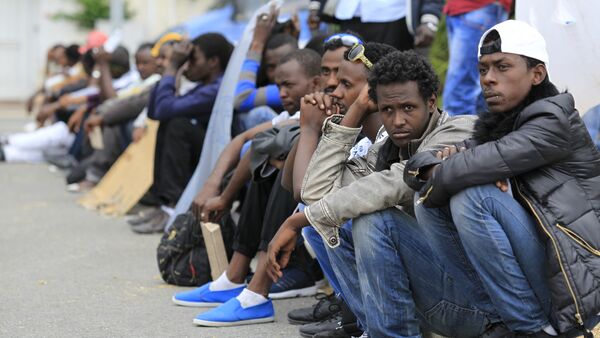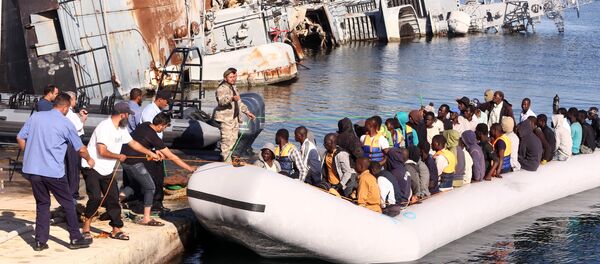Seven Italian NGOs have lashed out at French border police for modifying the birth dates of underage migrants travelling unaccompanied to pass them off as adults in order to send them back across the French-Italian border, the Guardian reported.
They cited two cases in which the wrong data was provided on "refusal of entry" documents.
One of the alleged incidents took place in March. As charity staffers were monitoring the situation around the Italian border town of Ventimiglia, they took notice of two minors being stopped by police at the checkpoint.
"We saw the police write the incorrect date of birth on the 'refusal of entry' document. One of the children took a photo of the document and you can see his date of birth has been changed from the one he declared. We managed to block them from being sent back and eventually the French took them in," said Daniela Ziterosa, a legal assistant with Intersos charity.
The boy who took the photo of the document was born in Eritrea on 1 October 2001, but the date on the form was "January 1, 2000." He arrived in Italy in June 2017 and was heading for Sweden, where his brother lives.
With this in view, charities have also slammed Italian authorities for failing to implement adequate measures to simplify family reunifications, with many children stranded and thus having to travel across borders alone, which contradicts the EU legislation.
READ MORE: German-Jewish Teen Fleeing to Israel Over Anti-Semitism in Berlin Public School
The relations between Italy and France over their border have significantly soured after French agents recently turned up at an Italian train station to make a Nigerian migrant suspected of carrying drugs take a urine test.
The number of people arriving by boat in Italy has seriously decreased following a controversial pact clenched with Libya, under which Italy provides technical and operational support to the Libyan coast guards to jointly intercept boats and return migrants back to North Africa.
If they finally reach Italy, many attempt to move further north in an attempt to cross into France, Austria or Switzerland, but are usually hindered by Italian border police and forced to live in hard out-of-doors conditions while waiting for permission to continue their journey.
Despite the deal with Libya, Italy still sees the highest amount of arrivals by sea in Europe. According to figures released this week by the UN’s migration agency, the number of people who have landed on the country’s southern coast since early 2018 stands at 6,894.




